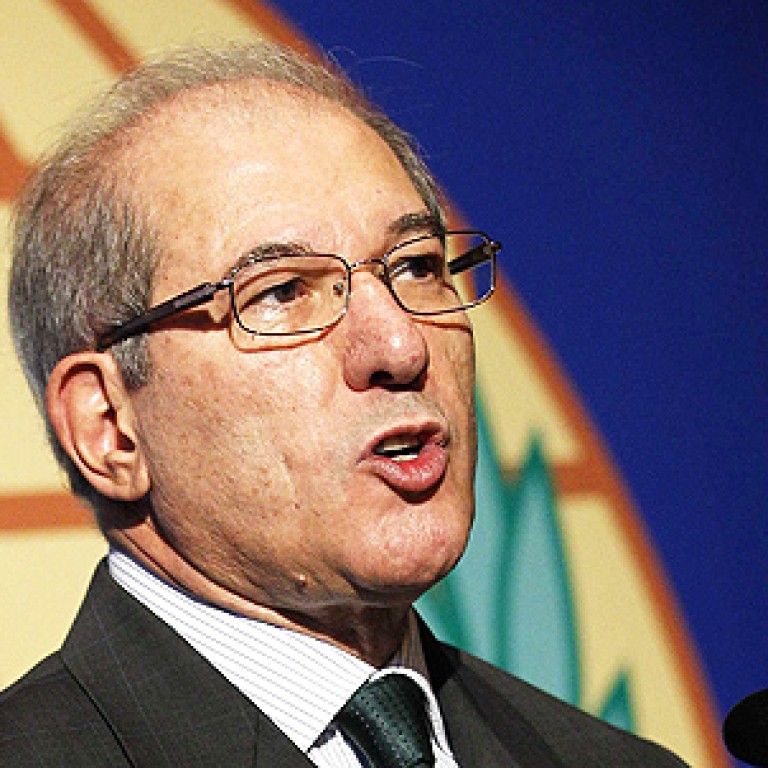
Nobel Peace Prize winner wants to focus on eliminating Syria arms
Organisation missed a 2007 deadline to eliminate all chemical weapons but is pressing on, with Syria becoming its biggest challenge
The winner of this year's Nobel Peace Prize is a body that has spent years trying to rid the world of chemical weapons in relative obscurity and was recently thrust into the limelight by the Syrian crisis.

Syria last month signed up to the Chemical Weapons Convention, which the OPCW enforces, agreeing to hand over its chemical weapons for destruction under a Russia-US plan aimed at averting military strikes on the country in the wake of a devastating chemical attack on a Damascus suburb.
President Bashar al-Assad's regime is accused of using the arms in an August 21 attack that killed hundreds of people on the outskirts of Damascus. But he has denied the charge.
Previously one of only five countries not to have signed the global treaty, Syria accepted the Russian proposal last month and has won rare praise for its co-operation with OPCW's inspectors, who are already hard at work.
Ahead of the announcement, the organisation said it preferred to focus on the task in Syria rather than any jubilation.
The organisation began work in 1997 and has overseen the destruction of 57,000 tonnes of chemical weapons, mostly US and Russian arsenals.
"It's the slow steady laying down of bricks over the weeks, months and years, people sitting in control rooms watching this stuff going into the chutes," OPCW spokesman Michael Luhan said.
"It's our persistence, without any fanfare ... it's the slow grinding work that we hope over time will be more appreciated."
But Luhan said he did not want the Nobel Peace Prize to overshadow its dangerous mission in Syria.
"We don't want to be seen as a one-note song," he said.
Chemical weapons were first used in combat in the first world war and again in 1988 against civilians in Halabja, Iraq, with the Chemical Weapons Convention finally drawn up in 1993 in Paris.
The convention entered into force on April 29, 1997, and the OPCW began its work on the edge of a quiet upmarket leafy suburb in The Hague soon after.
The convention was the result of almost 20 years of negotiations at the Conference on Disarmament in Geneva, and initially aimed to eliminate all the world's chemical weapons by 2007.
It was preceded by the 1925 Geneva Protocol, which banned the use of chemical weapons but not their development under a "no first use" notion.
The OPCW has 189 so-called states parties, including nearly all industrialised nations and which encompass more than 98 per cent of the world population.
Israel and Myanmar have signed the convention but not ratified it, while Angola, Egypt, North Korea and South Sudan have done neither.
Syria last month applied to join the convention, which comes into effect in the warravaged nation on Monday.
"It is the first multilateral treaty to ban an entire category of weapons of mass destruction and to provide for the international verification of the destruction of these weapons," according to the OPCW website.
However, it contains no specific punitive measures.
The document says only that the OPCW can "in cases of particular gravity, bring the issue, including relevant information and conclusions, to the attention of the United Nations General Assembly and the United Nations Security Council".
About 80 per cent of world stocks of declared chemical agents have been destroyed under supervision, it says.
